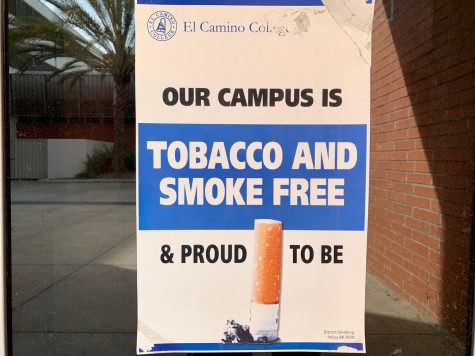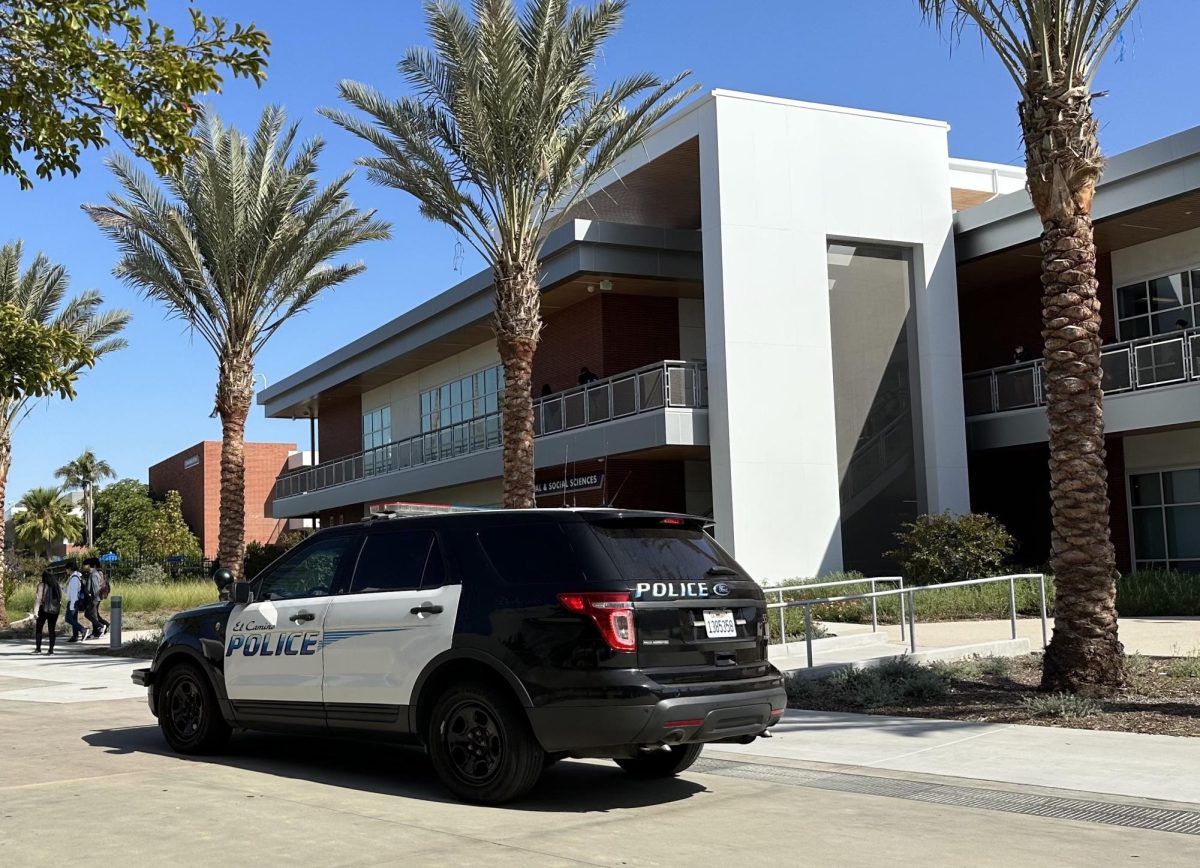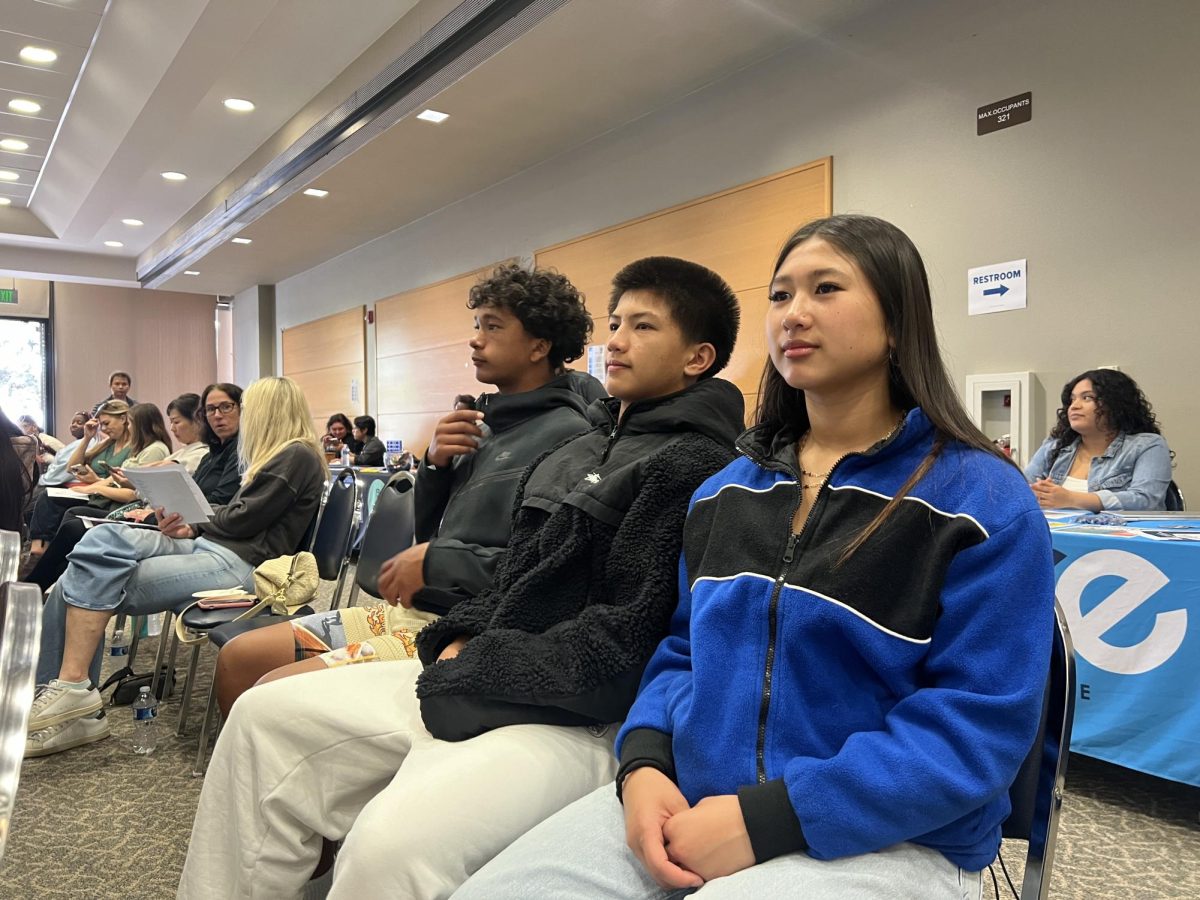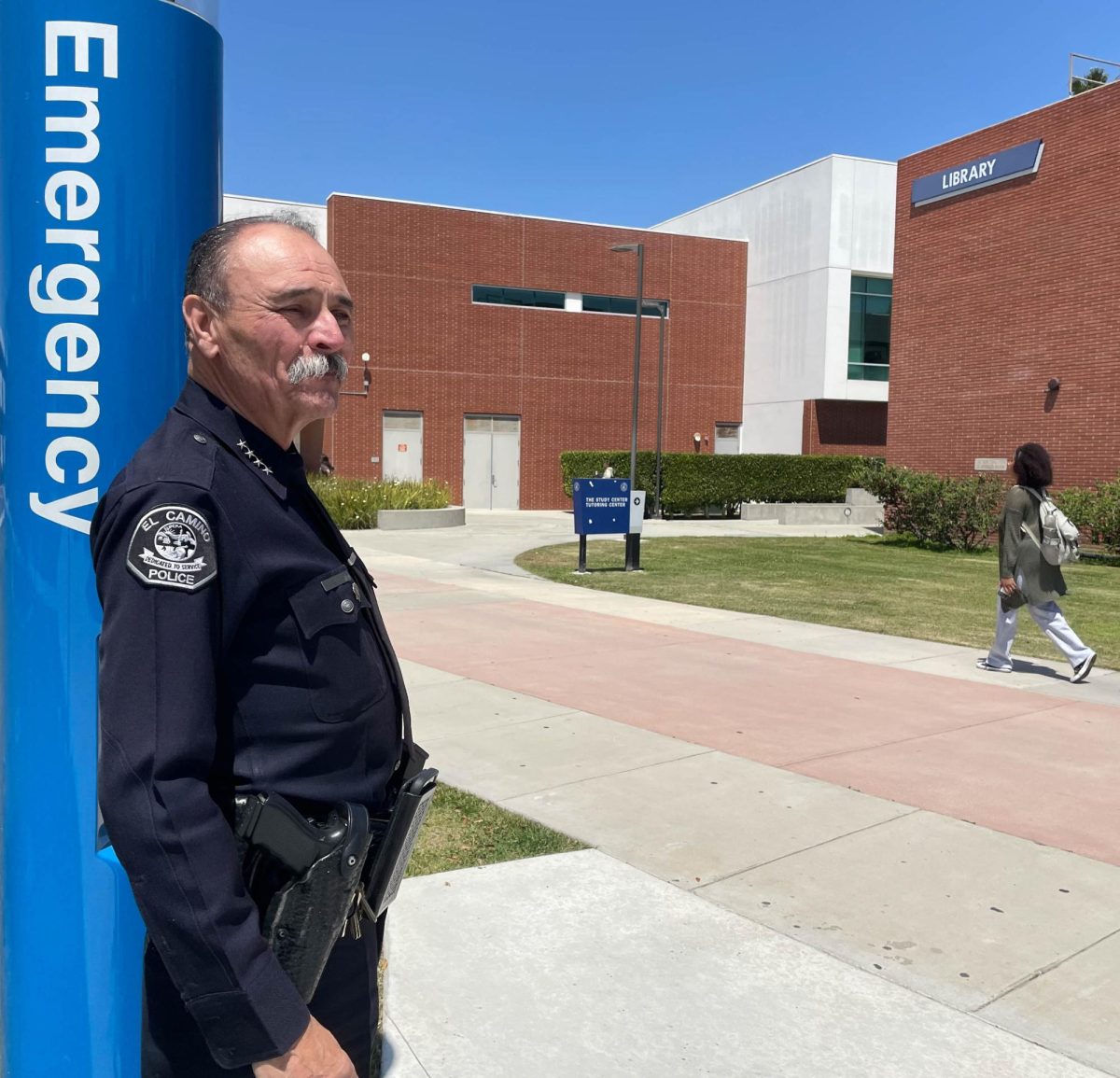While a smoke-free campus policy is established at El Camino, individuals can still be seen smoking cigarettes, vapes, and even marijuana on campus.
The policy, approved on Feb. 17, 2016, establishes the EC campus as smoke-free, meaning that smoking, the use of smokeless tobacco products and the use of unregulated nicotine products are prohibited in indoor and outdoor spaces including parking lots, according to Board Policy (BP) 3750.
However, EC Chief of Police Michael Trevis said that smoking is not the biggest concern on campus but students should still report smokers.
“We are not the smoking police,” Trevis added.
Students may think that if police catch them smoking, they would be arrested but that is not the case.
If a student is smoking near a door, it is possible to receive a ticket for violating the community ordinance and EC.
According to the California Government Code Chapter 32: Smoking in Public Buildings (7596-7598), “No public employee or member of the public shall smoke a tobacco product inside a public building, or in an outdoor area within 20 feet of a main exit, entrance, or operable window of a public building, or in a passenger vehicle.”
Trevis said that in most cases, campus police will assess the situation, explain that this is a smoke-free campus, try to have them stop and give them a warning.

If a student has to be warned multiple times, they will face disciplinary action from the dean of students, while faculty is reported to the human relations department.
However, one thing can lead to getting arrested by campus police: marijuana.
“MJ is still illegal on campus, so if we catch you with that, then we would have to make an arrest,” Trevis said.
Still smoking
The administration has tried relaying the message about EC being smoke-free campus by putting up no smoking flyers around campus.
While the information is known, students continue to smoke on campus—most notably by the benches near the patio outside the Art Building and the Humanities Building.
“I thought that this was the smoking area on campus, ” said Louis Gonzales, music major. “I see people come here to smoke so I just assumed it was.”
In a previous article published by The Union, Brian Fahnestock, former vice president of administrative services said that creating a designated smoking area would be difficult because students don’t even follow the anti-smoking policy.
But Gonzales said he believes there should be a designated area where individuals can relieve tension and smoke without being judged.
“College is stressful man, it [a cigarette] usually helps me relieve that,” Gonzales said.
Health Risks
Tobacco, vapes and other smoke products are the same in the sense that they can lead to short and long-term health problems.
Tobacco is a plant that contains over 7,000 chemicals—250 of which are harmful to humans, according to the Center for Disease Control and Prevention (CDC).
Cigarettes and vape products such as Juul contain nicotine, an addictive stimulant.
Cigarette smoking harms nearly every organ of the body, causes many diseases, and reduces the health of smokers in general, according to the CDC.
While vaping may seem like a safer option, it is still, nonetheless, dangerous.
The difference between the two is that cigarettes burn the tobacco inside the product, whereas vapes can come in pods or pen-like devices that burn the oil inside with other chemicals.
Continuous smoking of tobacco products can lead to lung cancer, strokes, and heart disease.
Vape products can cause brain damage in adolescents and contain cancer-causing chemicals like lead, according to the CDC.
Along with being harmful to one’s body, products such as cigarettes can affect others and the surrounding environment through second-hand smoke.
“The toxic exposure can contaminate water and poison fish, as well as animals that eat cigarette butts,” according to the nonprofit organization Truth Initiative.
Students or faculty looking to quit smoking can make an appointment at the Health Center with current school ID.
Also, free workshops are offered every Wednesday at EC with the De-Stress for Survival Group presented by Dr. La Faune Gordon from noon to 12:45 p.m. in the Math Business and Allied Health Building’s Room 418.








